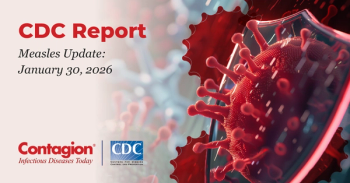
The Value of Measuring T-Cell Response in COVID-19
With an evolving understanding of T-cells in immunity and emerging SARS-Co-V2 strains, evaluating these vital protection cells can offer researchers insights into response and how to develop future therapies and vaccines.
As public health officials and clinicians grapple with the ever-changing COVID-19 strains and the limiting efficacy in vaccines, evading immunity is a common discussion as the emphasis has transitioned from completely protecting people against SARS-CoV-2 to reducing virus severity including hospitalization and mortality.
Vaccines and boosters may be efficacious for some months, but waning immunity has led to more breakthrough infections on a widescale basis. And vaccine efficacy studies continue to look at neutralizing antibodies as the key measurement for protection and have shown limited interest in measuring T-cell response to evaluate long-term protection.
“Much of the focus in vaccine development and immunity surveillance has been on the role of neutralizing antibodies (nAbs), with less emphasis on understanding the role of T cells, memory B cells and non-neutralizing antibodies that may confer protection via mechanisms such as opsonization and antibody-dependent cellular cytotoxicity,” investigators wrote in a paper written in
“The neutralizing antibodies we are looking for only bind to a very small part on the tip of the spike protein,” Harlan Robins, PhD, cofounder and CSO, Adaptive Biotechnologies, said. “Whereas, the T-cell response is spread out across the entire genome.”
The role T-cells have played in understanding COVID-19 immunity and vaccine response has been limited at best. Measuring T-cell response could help provide a more complete picture of protection after vaccination. A growing body of evidence indicates T-cells may be an important correlate for protection and should be considered as an endpoint for vaccine clinical trials and in the development of next generation vaccines and boosters.
Seattle-based Adaptive Biotechnologies is a company focused on the adaptive immune system in diagnosing and treating disease. In looking at T-cells and COVID-19, the company has developed their T-Detect test to determine a recent or past COVID-19 infection. This test has received a Food and Drug Administration Emergency Use Authorization.
Adaptive has another test, immunoSEQ T-MAP COVID, which provides researchers with the ability to determine past SARS-CoV-2-specific immune response in research samples and track responses longitudinally.
Part of the issue has been the difficulties of T-cell measurement. Whereas, B-cells are easily detected, Robins explains, T-cell measurement has been challenging. “T-cells don’t excrete anything—meaning that you have to look at the cells themselves—and to understand their functional properties you need to keep them alive,” Robins, said. “…We tried to map the primary functional property, which is what they are binding to...that piece of information is contained in DNA in those T-cells, which is super stable. So, if we could read that piece of DNA directly to determine the function of the cell, we no longer needed live cells to do this assessment.”
Along with testing, Adaptive has been creating partnerships with vaccine makers to consider T cell-focused COVID-19 vaccines. “Imagine if you could do a much better job and intentionally create a vaccine where it is focused on the T-cell response,” Robins explained. “You want to complement it with an approach that also generates neutralizing antibodies, but a broad T-cell response can give a base that should protect you for a significant period of time from getting severely ill.”
Contagion spoke to Robins about how technology and chemistry are coming together to create more medical data in this area, and if regulatory agencies should also be looking at T-cell assessment along with antibody assessment in COVID-19 vaccine trials.
Newsletter
Stay ahead of emerging infectious disease threats with expert insights and breaking research. Subscribe now to get updates delivered straight to your inbox.



































































































































